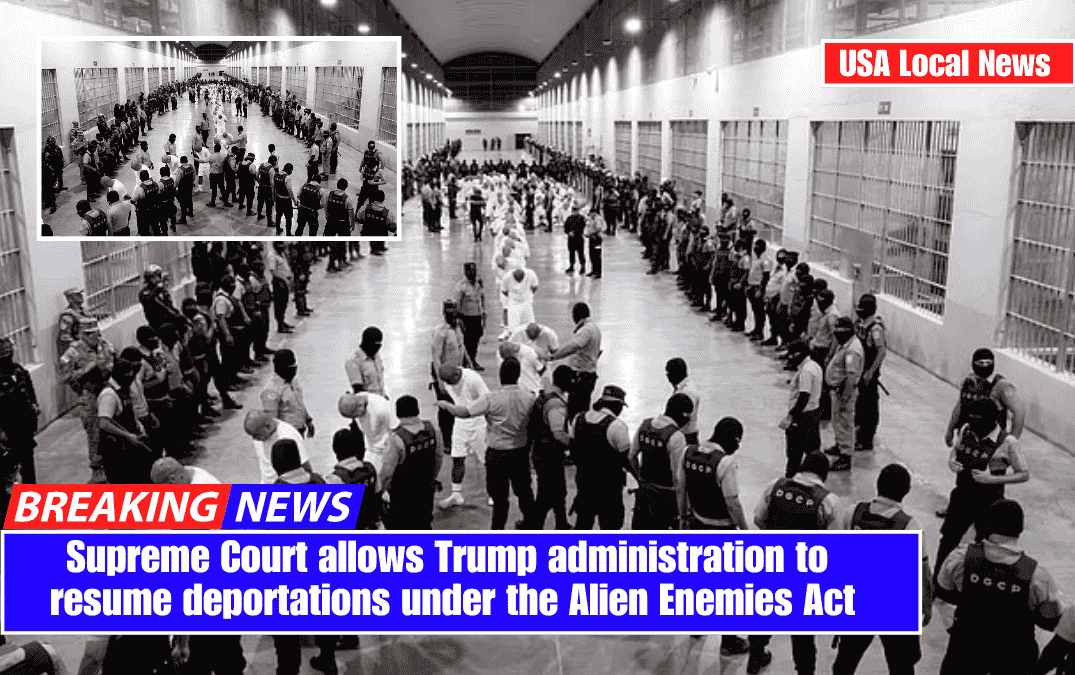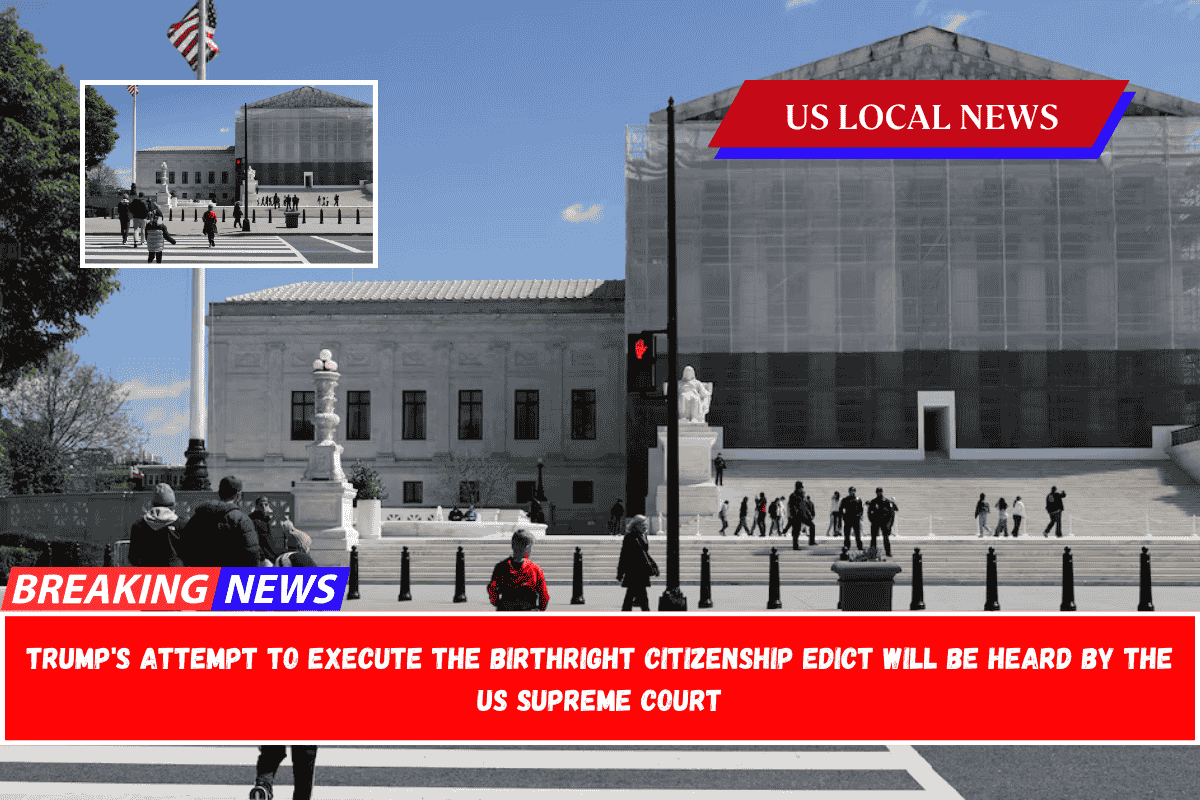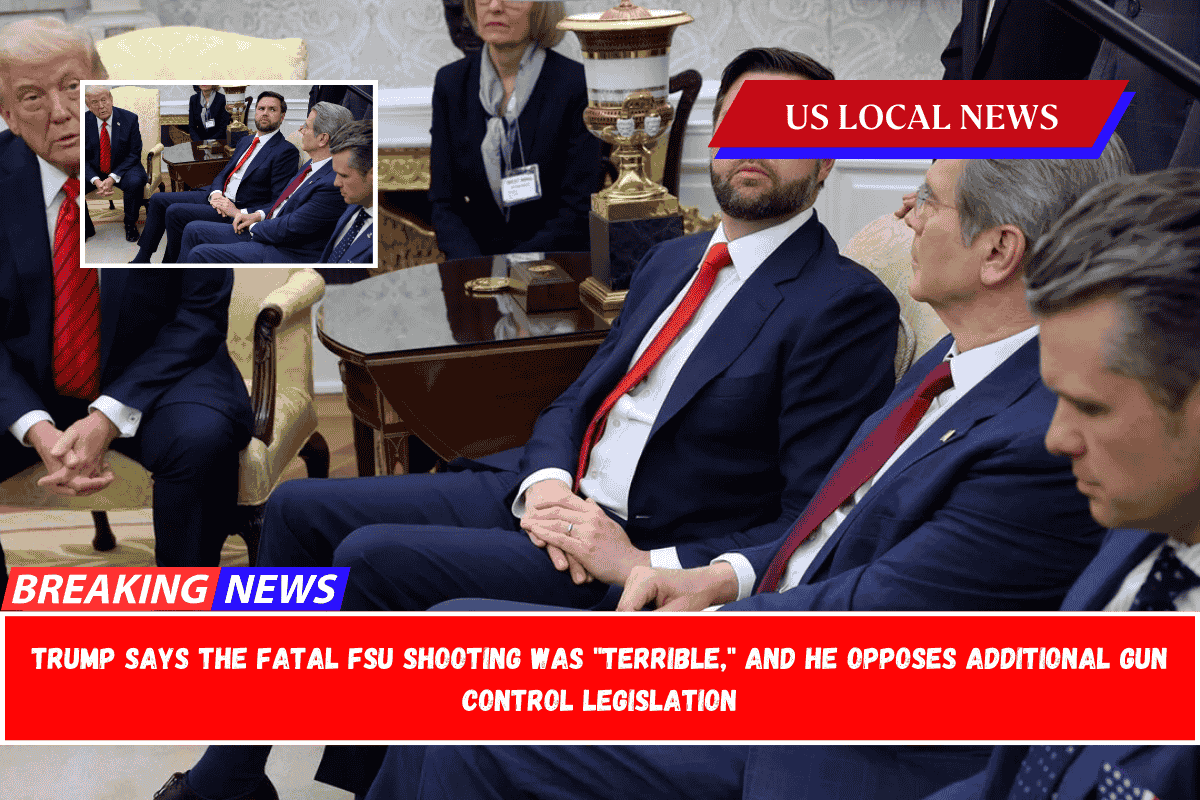A divided Supreme Court ruled on Monday that the Trump administration can resume deporting certain immigrants, granting President Donald Trump a partial victory in his hardline immigration policy.
The court did not rule on whether Trump can use the Alien Enemies Act to deport immigrants he claims are members of a Venezuelan criminal gang. And the majority agreed that immigrants should have a chance to contest their deportation.
However, the ruling states that the immigrants filed their challenge in the wrong court.
“The detainees are confined in Texas, so venue is improper in the District of Columbia,” the majority wrote in an unsigned opinion that overturned a judge’s temporary order prohibiting deportations without hearings. The court has a 6-3 conservative majority. The three liberal justices, along with conservative Justice Amy Coney Barrett, dissented.
The decision allows the Justice Department to continue using the 1798 law to deport immigrants who it claims are members of a Venezuelan crime gang.
“The Supreme Court has upheld the Rule of Law in our Nation by allowing a President, whoever that may be, to be able to secure our Borders, and protect our families and our Country, itself,” tweets Donald Trump on social media. “A GREAT DAY FOR JUSTICE IN AMERICA!”
In her dissent, Justice Sonia Sotomayor wrote that the decision is “indefensible.”
The Government’s conduct in this litigation poses an extraordinary threat to the rule of law,” adding: “We, as a nation and a court of law, should be better than this.”
Despite siding with the administration, the court’s majority limited the scope of deportations, emphasizing the importance of judicial review.
Detainees must be notified after the date of this order that they are subject to removal under the Act. “The notice must be given within a reasonable time and in such a way that they can actually seek habeas relief in the proper venue before such removal occurs,” the majority stated.
Lee Gelernt, one of the immigrants’ attorneys, called it a significant victory.
“The critical point of this ruling is that the Supreme Court said individuals must be given due process to challenge their removal under the Alien Enemies Act,” according to his statement.
Nonetheless, Steve Vladeck, a professor at Georgetown University Law Center, believes the decision makes it more difficult for immigrants to raise systemic concerns about the Trump administration’s actions.
“By relying upon an unpersuasive procedural technicality to force more individualized litigation, the Court is effectively bringing a pea-shooter to a gunfight,” Vladeck wrote in a piece for Substack.
The administration claims the law grants presidents “near-blanket authority” to detain and deport any noncitizen from a country at war with the United States.
However, an appeals court ruled that the invasion had to be carried out by a foreign government, not a gang. The law had only been used three times previously, during the War of 1812 and the two World Wars.
Chief U.S. District Judge James Boasberg had ruled that alleged Tren de Aragua, or TdA, members deserve a hearing to deny membership in the gang, but the administration successfully argued to the high court that the hearing should not be held in Boasberg’s courtroom.
Acting Solicitor General Sarah Harris stated that the case presents a clear choice between whether the president or the judiciary will set policy in sensitive national security cases.
“The Constitution supplies a clear answer: the President,” said Harris. “The republic cannot afford a different choice.”
She argued that the Supreme Court should limit Boasberg’s order to the five immigrants who filed the challenge, which the judge expanded to include anyone else who would be affected by Trump’s policy. Harris argued that any migrant can file a claim individually, but only in Texas, where they are detained, and on narrower grounds.
Twenty-seven Republican attorneys general supported the administration, telling the Supreme Court that they “finally have a welcome partner in the presidency willing to fight for the safety and security of the American people.”
However, a group of conservatives and former government officials, including former federal appeals court judge Michael Luttig and former CIA Director Michael Hayden, said the question was whether the president or the judiciary had the final say on the powers Congress granted the president under the Alien Enemies Act.
“Judicial review is intrinsic to the essential checks and balances the Framers enshrined in our constitutional system,” they stated in a filing spearheaded by the State Democracy Defenders Fund.
Attorneys for the immigrants who initiated the challenge described the administration’s request as “extraordinary.”
“The President’s effort to shoehorn a criminal gang into the (Alien Enemies Act), on a migration-equals-invasion theory, is completely at odds with the limited delegation of wartime authority Congress chose to give him through the statute,” they said.
The judge’s temporary suspension of deportations is the only thing keeping the immigrants from being sent to a notorious prison in El Salvador, “perhaps never to be seen again,” they said.
And the pause does not harm the government because the immigrants remain in government custody while the litigation is ongoing, they added.
Boasberg was scheduled to hold a hearing on April 8 to decide whether to extend his temporary pause into a longer-term preliminary injunction.










